NEWS
20 Electrifying Benefits of Switching to an Electric Car
Published
9 months agoon
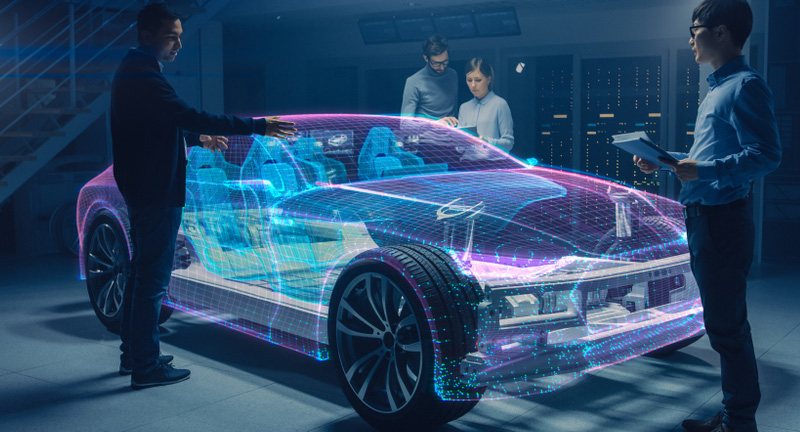
Shutterstock
Electric vehicles (EVs) are increasingly seen as a promising response to the environmental, economic, and technological challenges currently confronting the automotive sector. Offering zero-emission operation, superior energy efficiency, and cutting-edge features, EVs stand out as a strong alternative to conventional gasoline-powered cars. This transition to electric mobility is transforming the transportation industry, promoting sustainability and driving technological progress.
Electric Motor Efficiency
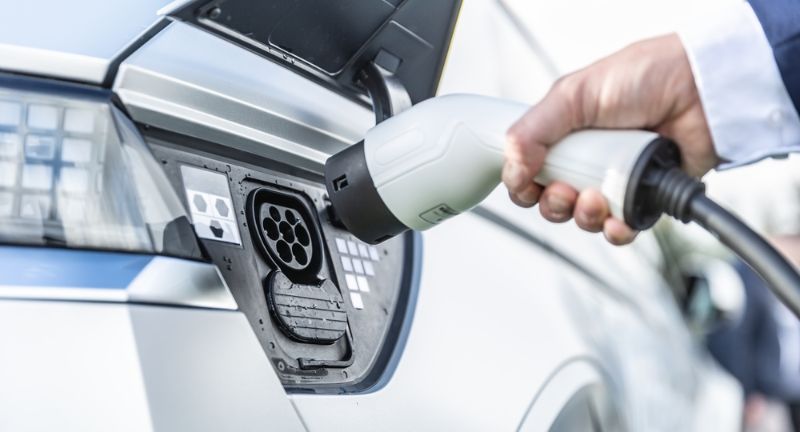
Shutterstock
Electric motors offer superior efficiency compared to internal combustion engines, effectively converting more energy from the battery into driving power. This high efficiency enables electric vehicles to cover longer distances on the same amount of energy compared to conventional gasoline-powered cars. By optimizing energy use, electric vehicles help conserve resources and lower overall energy consumption, making them a sustainable transportation solution for the future.
The Enjoyment of Driving Electric Cars

Shutterstock
Many drivers value the smooth, quiet, and responsive experience that electric cars provide. Features such as instant torque, seamless acceleration, and superior driving dynamics contribute to this satisfaction. With cutting-edge technology and impressive performance, electric vehicles offer an enjoyable ride for both car enthusiasts and daily commuters. This positive driving experience is a significant reason for the increasing popularity of electric cars.
Range and Infrastructure Improvements

Shutterstock
Advances in battery technology and the expansion of charging infrastructure are steadily increasing the range and convenience of electric vehicles. This enables drivers to travel longer distances on a single charge and reduces range anxiety, making electric cars more practical for everyday use and long-distance travel. With more charging stations being installed in public places and along major travel routes, electric vehicle owners have greater accessibility and convenience when recharging their vehicles. Overall, range and infrastructure improvements are key drivers in accelerating the adoption of electric mobility.
Quieter Urban Areas

Shutterstock
Electric vehicles operate with significantly less noise, helping to diminish noise pollution in cities. This leads to quieter, more serene environments for both inhabitants and pedestrians. The reduction in noise levels enhances the overall quality of life for city dwellers, contributing to better well-being. In essence, the quieter operation of electric vehicles is a key factor that makes them a desirable choice for modern transportation.
Remote Updates and Diagnostics
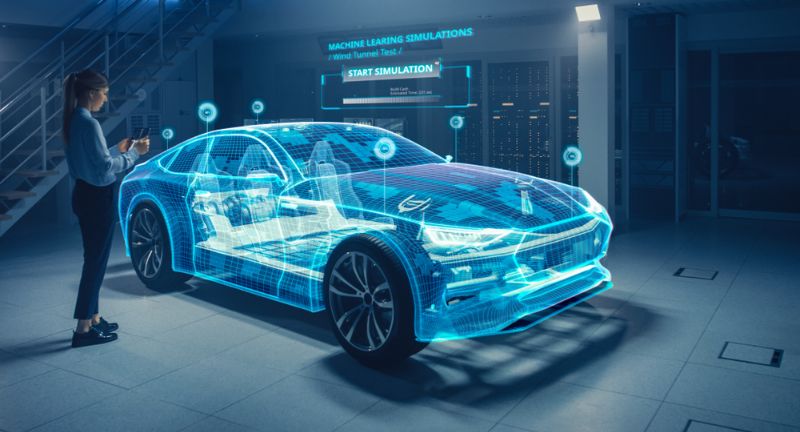
Shutterstock
Electric vehicles have the capability to receive software updates remotely. This improves performance and allows for more efficient diagnostics. Manufacturers can address software bugs, enhance features, and optimize vehicle performance without requiring a physical visit to a service center. Remote diagnostics enable electric vehicle owners to identify and address potential issues proactively, minimizing downtime and inconvenience. Overall, remote updates and diagnostics enhance the ownership experience and improve the reliability of electric vehicles.
Cost Efficiency of Electric Cars

Shutterstock
Although the initial purchase price of electric cars is often higher, the reduction in fuel and maintenance expenses can render them more economical over the duration of ownership. This potential for long-term savings is especially notable for individuals who drive extensive distances each year. Advances in battery technology and the benefits of scaled manufacturing are contributing to the decreasing costs of electric vehicles. Consequently, these long-term financial savings are making electric vehicles a wise choice for numerous buyers.
Decreased Reliance on Fossil Fuels
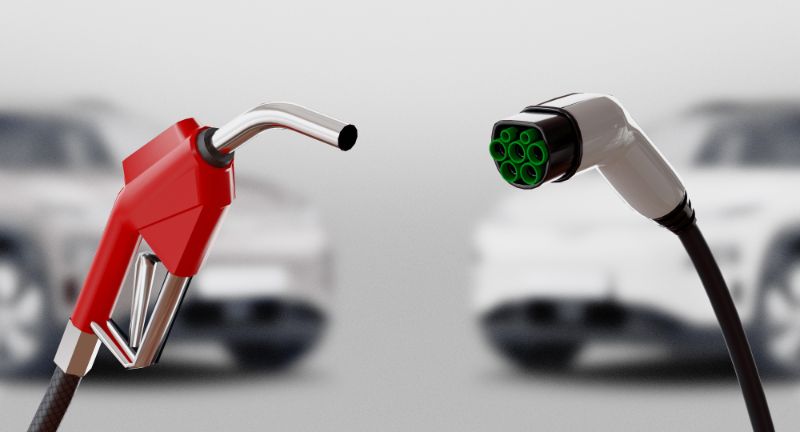
Shutterstock
Renewable energy sources can power electric vehicles, cutting down on fossil fuel dependence. Transitioning to renewable energy aids in minimizing the environmental damage caused by fossil fuel extraction and combustion. Diversifying transportation energy sources also boosts societal energy security and resilience. In the end, less reliance on fossil fuels is essential for long-term sustainability and combating climate change.
Reduced Operational Expenses

Shutterstock
Electricity is usually less expensive than gasoline, which leads to lower fuel costs per mile. These savings can accumulate substantially over the vehicle’s lifespan, rendering electric cars more cost-effective over time. Moreover, electric vehicles often necessitate less maintenance compared to conventional cars, further decreasing operational expenses. In summary, reduced operational costs make electric cars an appealing choice for budget-aware consumers.
Benefits of Home Charging for Electric Vehicles
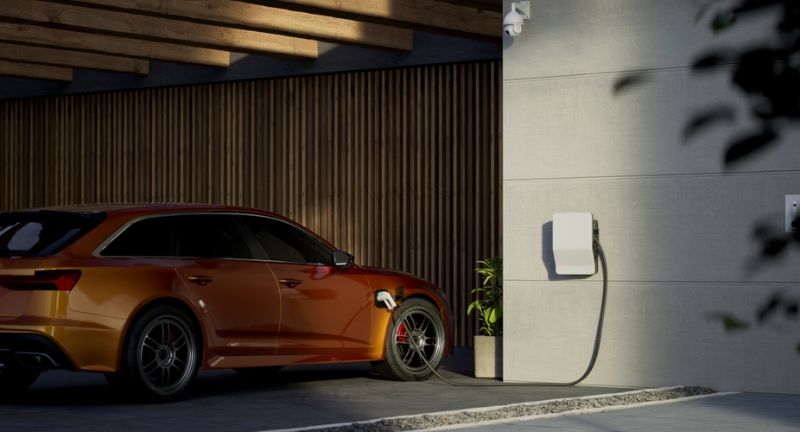
Shutterstock
Charging electric vehicles at home offers significant convenience, as it removes the necessity of frequent trips to gas stations. This allows drivers to begin each day with a fully charged vehicle, ensuring that they have ample range for their daily travel needs. Home charging grants electric vehicle owners more flexibility and control over their charging routines. Ultimately, this convenience enhances the overall ownership experience, making electric vehicles more practical for daily use.
Potential for Vehicle-to-Grid Integration

Shutterstock
Electric vehicles hold the potential to support the power grid by providing stored energy during peak demand times, thereby enhancing grid stability. This process, known as vehicle-to-grid (V2G) integration, involves electric cars acting as mobile energy storage systems, which adds flexibility and resilience to the electrical grid. By taking part in V2G programs, electric car owners can receive incentives and lower their energy expenses while contributing to grid reliability. In essence, V2G integration offers an innovative method to optimize energy utilization and improve the sustainability of electric vehicles.
Lower Maintenance Costs in Electric Cars

Shutterstock
Electric vehicles (EVs) have significantly fewer moving parts compared to conventional gasoline-powered cars, which translates to reduced maintenance expenses over the lifespan of the vehicle. The simplification in design means that there are fewer components susceptible to wear and tear, thereby decreasing the frequency and necessity of services and part replacements. This reduction in maintenance not only saves money but also minimizes the time and inconvenience typically associated with vehicle upkeep. Consequently, electric cars provide a more convenient and cost-effective ownership experience for their drivers.
Environmental Impact of Electric Cars
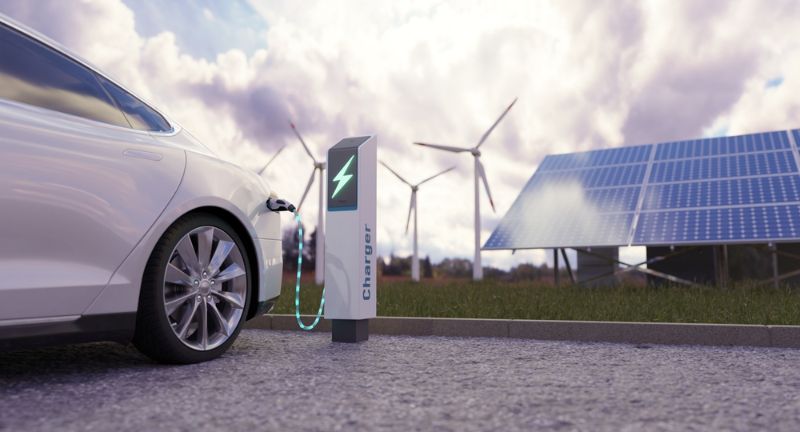
Shutterstock
Electric cars produce no tailpipe emissions, which helps reduce air pollution and combat climate change. This benefit is particularly vital in urban areas where air quality is often a major issue. Transitioning to electric vehicles allows societies to significantly lower their carbon footprints, thereby helping to mitigate the effects of global warming. In summary, the environmental advantages of electric cars contribute to a healthier planet for both present and future generations.
Innovative Design
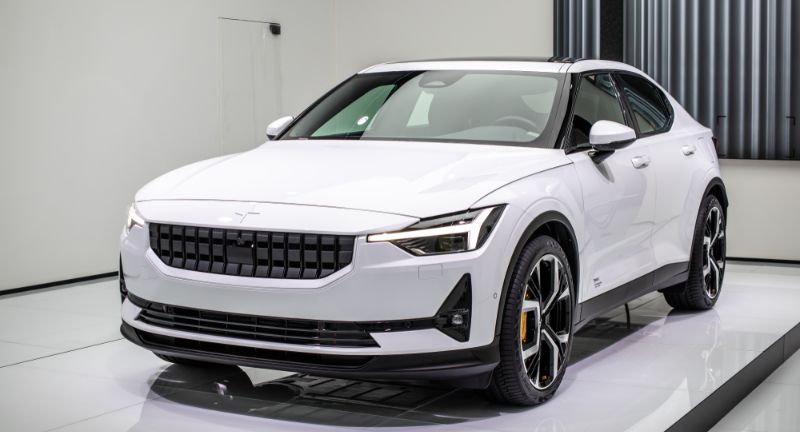
Shutterstock
Electric cars frequently showcase groundbreaking designs and technologies, capturing the interest of those who seek state-of-the-art vehicles. This encompasses streamlined aerodynamic profiles, modern interiors, and sophisticated driver-assistance features. By expanding the horizons of automotive design, electric vehicles attract drivers who desire both style and environmental consciousness. Ultimately, innovative design is a crucial element propelling the rise in popularity of electric cars in the current market.
Government Incentives for Electric Vehicles

Shutterstock
Governments across the globe are providing a range of incentives, including tax credits and rebates, to make electric vehicles more affordable for consumers. These initiatives are designed to accelerate the adoption of electric vehicles and to significantly cut down greenhouse gas emissions from the transportation sector. By offering financial benefits, governments are encouraging consumers to opt for environmentally friendly car choices. In summary, government incentives are pivotal in promoting the shift towards electric mobility.
Fostering Technological Progress

Shutterstock
The transition to electric vehicles is driving progress in battery technology, charging infrastructure, and vehicle design. These innovations not only enhance the performance and efficiency of electric cars but also promote advancements in related sectors. By investing in research and development, manufacturers are continually improving electric vehicle technology, making it more accessible and attractive to consumers. In summary, fostering technological progress is crucial for speeding up the shift to electric mobility and reaching sustainability objectives.
Enhanced Air Quality

Shutterstock
Electric cars, by cutting down on tailpipe emissions, significantly enhance air quality, particularly in cities. This decrease in pollution helps alleviate health issues linked to poor air quality, such as respiratory and cardiovascular diseases. Better air quality also supports environmental health by promoting ecosystem stability and biodiversity. In essence, adopting electric vehicles is vital for fostering cleaner, healthier communities.
Reduced Noise Pollution

Shutterstock
Electric vehicles operate more quietly compared to traditional cars, leading to a significant reduction in noise pollution, especially in urban environments. This subdued noise level enhances the driving experience for passengers and minimizes disruptions for both pedestrians and local residents. By lessening noise pollution, electric cars help in fostering quieter and more enjoyable urban living spaces. The reduction in operational noise is one of the numerous advantages that make electric vehicles attractive to consumers.
Immediate Power
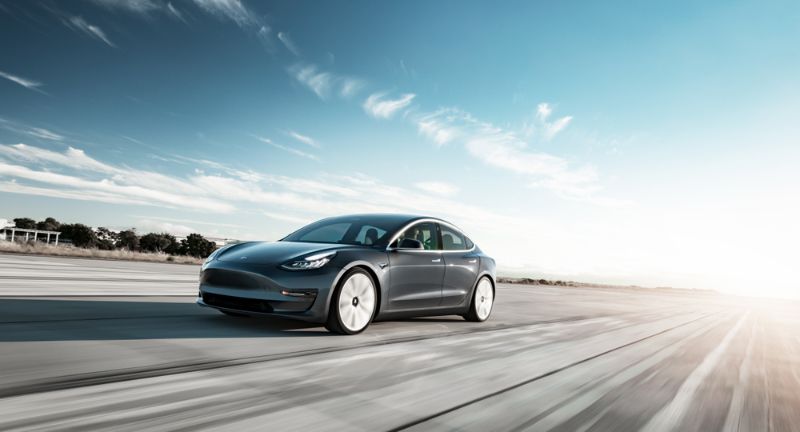
Shutterstock
Electric motors provide immediate torque, leading to rapid acceleration and responsive driving performance. This immediate power delivery ensures a smooth and thrilling driving experience, particularly when accelerating from a stop. Without the need for gears or complex transmissions, electric vehicles deliver seamless and effortless acceleration. In summary, immediate torque improves the driving dynamics and enjoyment of electric cars.
Regenerative Braking
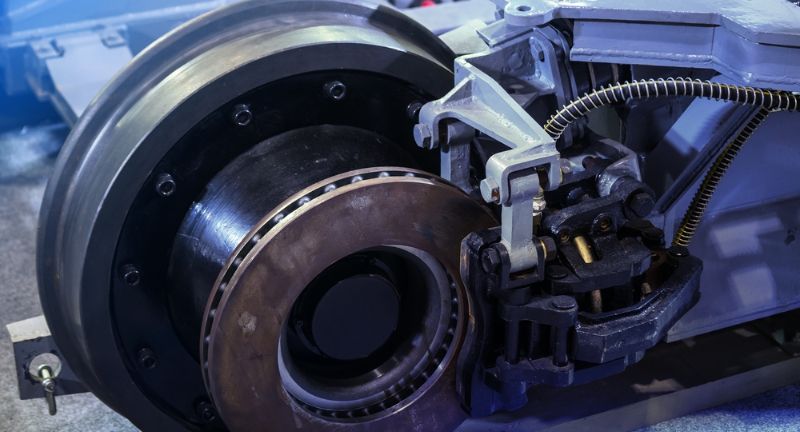
Shutterstock
Electric vehicles have a feature known as regenerative braking that captures energy during braking and stores it in the battery, thereby improving overall efficiency. This system assists in extending the vehicle’s range and minimizes energy wastage during deceleration. By converting kinetic energy, which would otherwise be lost as heat, regenerative braking significantly enhances the energy efficiency of electric cars. This technology plays a vital role in maximizing the efficiency and sustainability of electric vehicles.
Reduced Carbon Footprint

Shutterstock
Electric cars have a significantly lower carbon footprint than gasoline-powered vehicles, especially when they are charged using renewable energy sources. This reduction in greenhouse gas emissions helps to mitigate climate change and its associated impacts, such as rising temperatures and extreme weather events. By transitioning to electric vehicles, societies can better align with global climate goals and reduce their overall environmental impact. In conclusion, electric cars are crucial in the transition towards a more sustainable and low-carbon future.
Conclusion
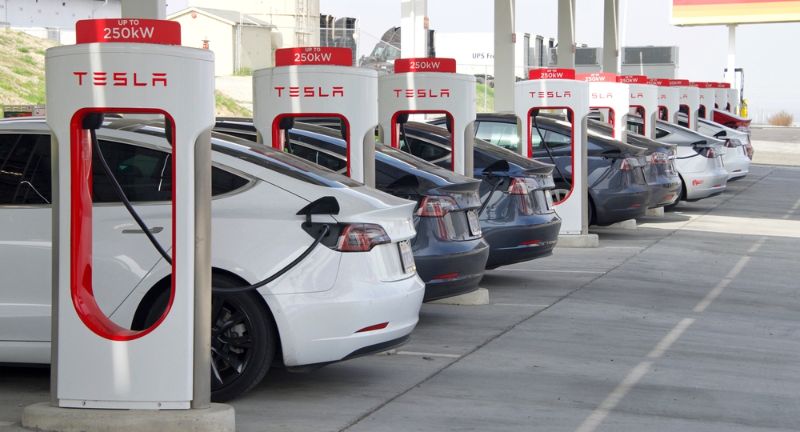
Shutterstock
As electric vehicles continue to gain traction and evolve, they represent more than just a mode of transportation—they embody a shift towards a cleaner, more sustainable future. With ongoing advancements in technology, infrastructure, and policy support, electric cars are poised to play a central role in reducing emissions, enhancing energy security, and driving innovation across industries. Embracing electric mobility is not just a choice but a necessary step towards building a greener and more resilient world for generations to come.
More From Financially+
-


19 Startling Reasons Why Moving to Texas Is Probably a…
-


21 Relationship Blunders Women Make That Drive Mature Men Away
-


22 Traits That Make Employers See Gen-Z as Toxic at…
-


19 Costly Home Renovations That Rarely Add Value
-


20 States Pushing for Higher Minimum Pay Amid Fierce Opposition
-


23 Policies Democrats Would Relentlessly Enforce If They Had Unlimited…
-


13 Reasons Why Living on the U.S. Median Income Feels…
-


Gas Prices Soar Over $3.50 Nationwide, Surging 40% Under Current…
-


20 Common Hacks That Waste Your Time and Money
